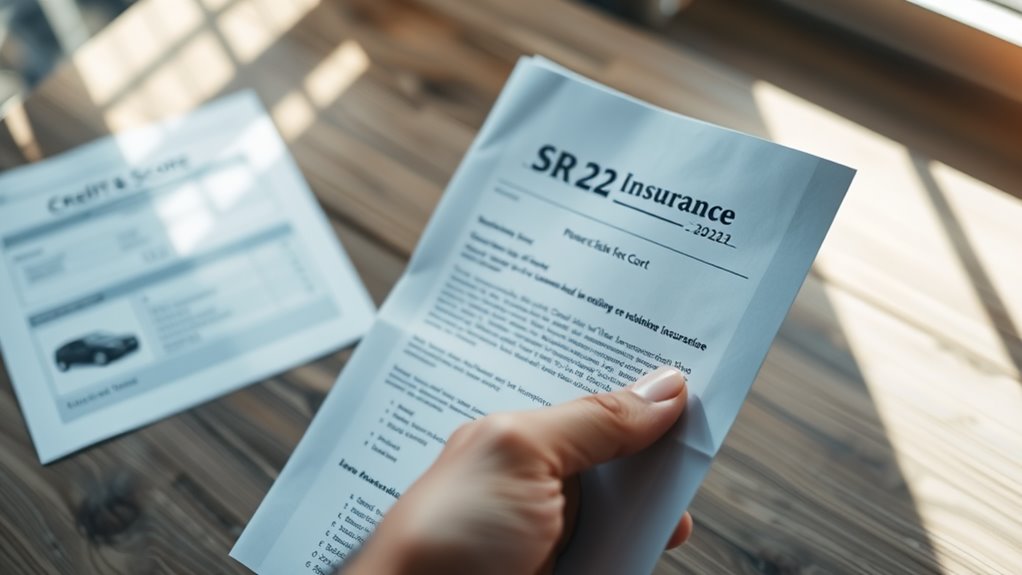Impact of Credit on Non-Owner Insurance Costs
While your driving record may be spotless, your credit score can dramatically affect your non-owner insurance rates. Insurers often perceive low credit as a sign of financial instability, leading to markedly higher premiums. This connection between credit and insurance costs raises important questions about fairness and financial strategy. How can you navigate these complex factors to minimize your expenses and secure better coverage?
As you navigate the complexities of car insurance, it's vital to understand how your credit score can greatly impact your premiums. If you're considering non-owner car insurance, you're likely aware that this type of policy covers liability when you drive vehicles you don't own. However, what might surprise you is how much your credit score can affect the costs associated with this kind of coverage.
Insurance providers use a credit-based insurance score, which differs from your standard credit score, to evaluate the risk you present as a driver. This score takes into account factors like your payment history and credit utilization, and it can lead to considerably higher premiums for those with poor credit.
Insurance providers assess your driving risk through a credit-based insurance score, influencing premiums significantly for those with poor credit.
When you have a low credit score, you may find yourself paying considerably more for non-owner insurance. In fact, drivers with poor credit can end up paying double what someone with excellent credit pays. This financial impact can be considerable, particularly if you live in a state where the laws allow insurers to weigh credit heavily in determining rates. Consumers with poor credit pay significantly higher premiums for auto insurance. Additionally, affordable SR-22 insurance options may become less accessible if your credit score is low.
In most states, credit plays a vital role in how premiums are calculated, while only a handful of states, such as California and Hawaii, restrict or ban the use of credit in insurance pricing altogether.
Moreover, if you drop even one credit tier, you could see your premiums increase by about 17% annually, which translates to an additional $355 each year. The implications of this can be intimidating, especially if you're trying to manage budgets while ensuring you have adequate coverage.
It's worth noting that even if you maintain a clean driving record, your poor credit can compound the costs of being classified as a high-risk driver.
Improving your credit score can serve as a long-term strategy to lower your insurance premiums. As your credit improves, you may see adjustments in your insurance costs as insurers reassess your risk profile over time. A strong credit score can potentially offset other negative factors, like a history of driving violations.
Conversely, insurers may continue to adjust your premium based on regular credit checks, reinforcing the significance of maintaining a positive credit profile.
The relationship between credit and insurance costs raises questions about fairness and responsibility. Insurers often view credit data as indicative of your financial responsibility, which leads them to charge higher premiums to those with lower scores.
This practice, however, remains controversial, with many arguing it doesn't accurately reflect a driver's ability. Legal challenges to this method of risk assessment have emerged, driven by concerns about discrimination and fairness in the insurance market.
Conclusion
Ultimately, your credit score can feel like a financial puppet master, pulling the strings of your non-owner insurance costs. A mere dip in your credit tier could skyrocket your premiums by up to 17%, leaving you grappling with an extra $355 annually. This stark reality underscores the importance of maintaining good credit; after all, insurers might see your credit as a crystal ball predicting your financial responsibility, impacting your wallet in ways you might never expect.






